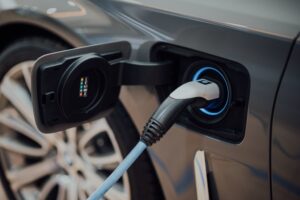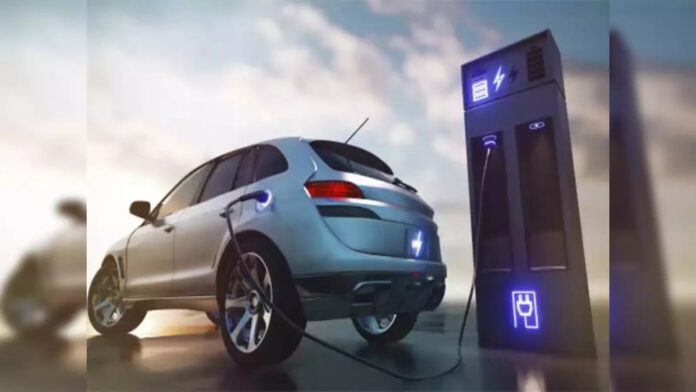Electric Car Sales Falling Globally, Leaving Carmakers Reeling: Here’s Why:
Electric vehicles (EVs) have been heralded as the future of mobility, with automakers worldwide adopting a “perform or perish” attitude as they invested billions in battery technology and new EV models. For a time, demand for these vehicles surged, but this honeymoon phase appears to be waning. The EV market now finds itself at a plateau, raising concerns among car manufacturers who, while not yet in full panic mode, are certainly keeping an eye on the panic button.
Ford’s F-150 Lightning Hits a Rough Patch
Ford Motor Company offers a telling example of the challenges facing EVs. Its F-150 Lightning, an electric version of the iconic pickup, was a success in the U.S. market, but recent months have seen demand cool. Ford has announced a seven-week shutdown of its Michigan facility, where this model is produced. The automaker attributes the decision to the need to adjust production to maintain a balance between sales growth and profitability. This move reflects Ford’s cautious approach in response to market volatility for EVs, highlighting that demand can be fickle even for previously popular models.
Tesla’s Struggles Amid Growing Competition
Tesla, the world’s largest EV manufacturer, is also feeling the pressure. Sales for its popular Model 3 and Model Y cars have not matched the heights of previous years. While Tesla did achieve a 6.4% growth in sales for the third quarter of 2024, analysts suggest this uptick was largely driven by the highly anticipated Cybertruck, which compensated for underperforming models in Tesla’s lineup. Moreover, Tesla faces stiff competition from Chinese automakers, particularly BYD, which has made significant strides in expanding its EV offerings globally. Tesla’s challenges illustrate the difficulties in sustaining growth amidst mounting competition and consumer fatigue with standard EV models.
European Carmakers Under Pressure from Chinese Imports
In Europe, local car manufacturers are feeling the heat from Chinese EV makers, whose aggressively priced models are gaining traction. This has prompted the European Union (EU) to impose higher tariffs on Chinese imports, aiming to protect the domestic market. Nevertheless, these protective measures haven’t resolved the broader issues plaguing European EV sales. Volkswagen, a titan of the industry, is preparing for temporary plant closures in Germany—a first in its 87-year history. This drastic step has sparked unrest among employees concerned about potential layoffs and wage cuts. Meanwhile, Mercedes-Benz recently reported a 50% drop in third-quarter profits, underlining the precarious situation for even the most established automakers in the European EV sector.

What’s Hurting Global EV Sales?
A recent report by Goldman Sachs Research analyst Kota Yuzawa suggests that a range of factors, both global and local, are contributing to the challenges faced by the EV industry. In the United States, political uncertainties surrounding the upcoming Presidential election add a layer of unpredictability for the auto industry. Domestic policies on EV subsidies, emissions standards, and infrastructure development could shift drastically depending on the election’s outcome, leaving manufacturers in a state of limbo.
Additionally, a rising demand for pre-owned vehicles has dented the new EV market, as consumers turn to more affordable used options in light of economic uncertainties. Another critical issue is the slow pace at which rapid-charging stations are being constructed, leaving many potential buyers hesitant to make the switch to electric. Furthermore, some consumers remain unconvinced that EVs offer a compelling value proposition, especially when comparing the upfront costs and limited charging infrastructure with the convenience of traditional vehicles.
India’s EV Market Struggles Without Subsidies
In India, the EV market faces unique challenges, with recent months witnessing a slump in electric car sales. The discontinuation of the Faster Adoption and Manufacturing of Hybrid and Electric Vehicles (FAME) scheme, which offered subsidies to encourage EV purchases, has contributed to a four-month sales decline for electric cars. In contrast, electric two-wheeler sales remain strong, suggesting that while there is a market for EVs in India, the transition to electric cars may require more government support.

Despite these challenges, major players in India’s automotive sector are pushing forward with their EV plans. Maruti Suzuki, the country’s largest car manufacturer, plans to launch its first electric car by early 2025. Hyundai and Mahindra are also set to expand their EV portfolios, with the Hyundai Creta Electric and Mahindra XUV 3XO EV scheduled for release in 2025. However, it remains to be seen whether these companies can achieve the volumes necessary to justify these expansions in the current market environment.
Looking Forward: Can EVs Regain Momentum?
The slowing demand for electric vehicles is a complex issue with no simple solution. While environmental benefits and government incentives continue to support the case for EVs, the industry faces several hurdles, including high costs, limited infrastructure, and intensified competition. Ford, Tesla, and European giants like Volkswagen are finding that their initial successes do not guarantee sustained growth. As EV makers navigate these choppy waters, they will need to innovate and adapt to meet evolving consumer expectations and economic conditions.
If the industry can address these concerns—by making EVs more affordable, expanding charging infrastructure, and finding new ways to differentiate their products—there is hope for renewed momentum. However, for now, the future of electric vehicles seems less certain, reminding automakers that their journey toward an all-electric future may be longer and more challenging than they had anticipated.

